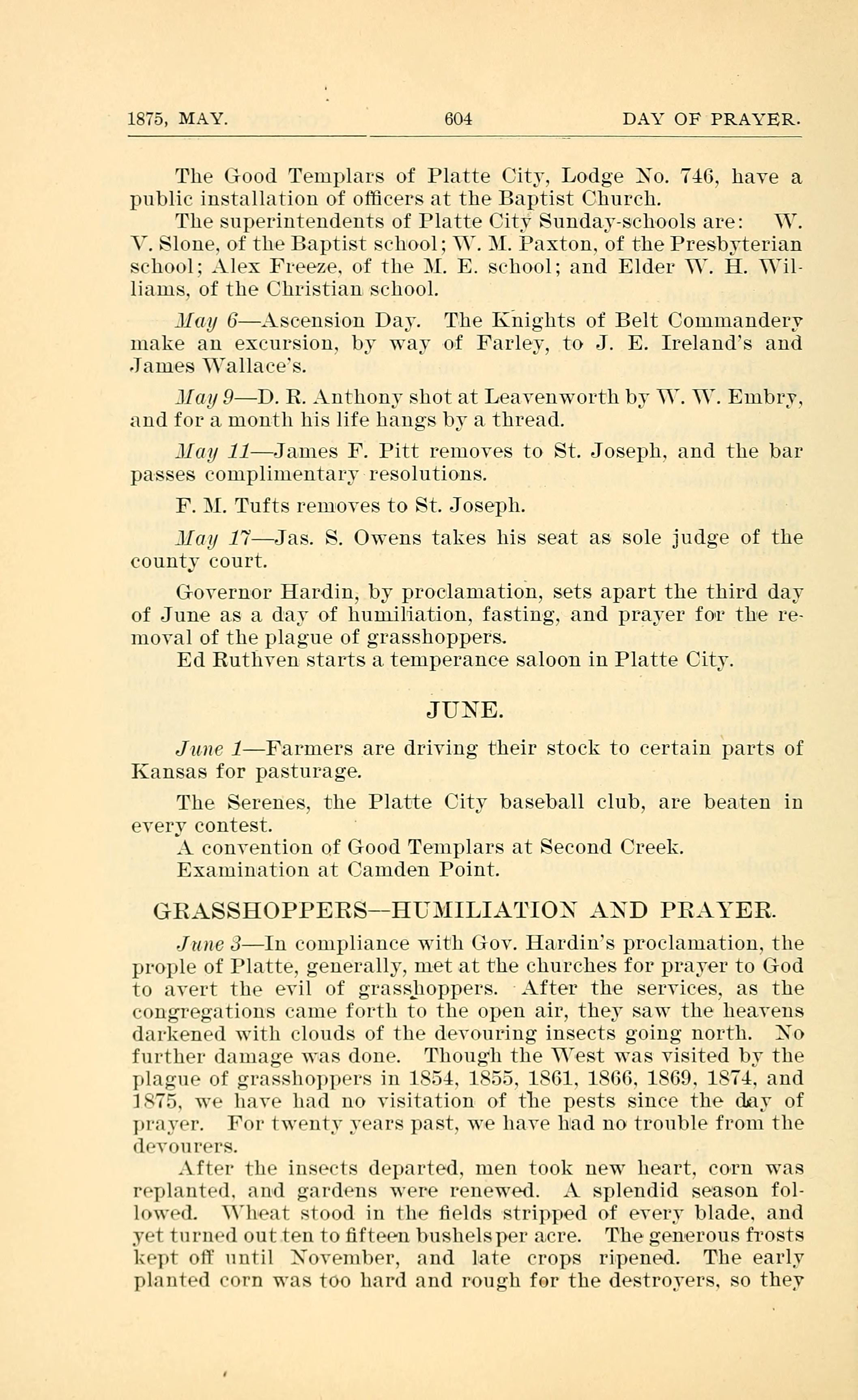Annals of Platte County, Missouri - Paxton
[previous page] [next page]

[previous page] [next page]
1875. MAY. 604 DAY OF PRAYER. The Good Templars of Platte City, Lodge No. 716, have a public installation of officers at the Baptist Church. The superintendents of Platte City Sunday-schools are: W. Y. Slone. of the Baptist school; W. M. Paxton, of the Presbyterian school; Alex Freeze. of the M. E. school; and Elder W. H. Wil- liams. of the Christian. school. Jlay 6-Ascension Day. The Knights of Belt Commandery make an excursion, by way of Farley, to J. E. Irelands and James Vallaces. Jlay .9D. R. Anthony shot at Leavenworth by W. W. Embry, and for a mouth his life hangs by a thread. JIag/ 11Jan1es F. Pitt removes to St. Joseph, and the bar passes complimentary resolutions. F. M. Tufts removes to St. Joseph. .1103; 1/Jas. S. Owens takes his seat as sole judge of the county court. Governor Hardin, by proclamation, sets apart the third day of June as a day of humjliatioin, fasting, and prayer for the re- moval of the plague of grasshoppers. Ed Ruthven starts a. temperance saloon in Platte City. JUNE. June 1Farmers are driving their stock to certain parts of Kansas for pasturage. The Serenes, the Platte City baseball club, are beaten in every contest. A convention of Good Templars at Second Creek. Examination at Camden Point. ION AND PRAYER. June 3In compliance with Gov. Hasrdins proclamation, the prople of Platte, generally, met at the churches for prayer to God to avert the evil of grassl1oppe1s. After the services, as the cnngregatioiis came forth to the open air, they saw the heavens darkened with clouds of the devouring insects going north. No further damage was done. Though the West was visited by the plague of grasshoppers in 1854. 1855. 1861. 1866. 1869. 1874. and 1.975. we have had no visitation of the pests since the day of prayer. For twenty years past, we have had no trouble fro111 the dc-vourers. . fter the ilisects departed, men took new heart, co-rn was replanted. and gardens were renewed. A splendid season fol- lowed. heat stood in the elds stripped of every blade. and yet. tll1I1Hl out ten to fteen bushels per acre. The generous frosts kept oil until Xovember, and late crops ripened. The early planted corn was too hard and rough for the destroyers. so they